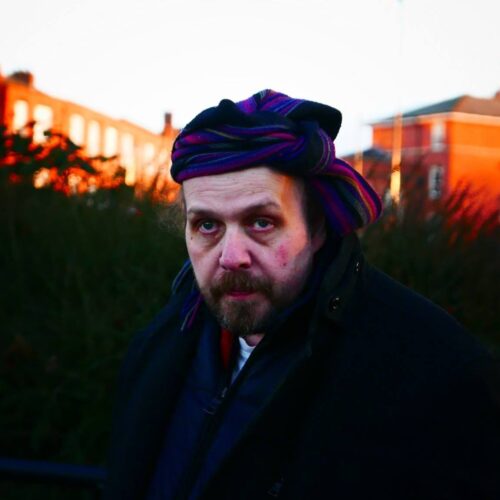
Organizing rewards
This is a post from the weareoca.com archive. Information contained within it may now be out of date.
Relocation, following the tragic death of my wife, to a quiet Suffolk village in which very little happens to disturb the leisurely pace of life (something that requires considerable revision after a city life that encouraged urgency and haste!) has stimulated an adaptation of daily agendas which now find a space for two important occupations hitherto shamefully neglected: the care of a garden, and time for creative thinking.

The investment of time and no small amount of energy should, when the snow clears and spring decides it is time, show all the signs of producing those fruits and vegetables that will be a reasonable reward for the thoracic and lumbar torment of the last half year. In spite of such newly found ways of inflicting novel muscular pains on myself, I managed to write and compose through those autumn evenings. As you can imagine, these creative activities need preparation, careful thought before pen is put to paper – and there is little better activity than digging, planting and caring for one’s own plot of land to allow the creative faculties to run their course and produce their own special fruitfulness.
These spells of creative work are best well disciplined, for when allowed a freedom to run wild they rarely mature, often simply remaining a leaking tap of ‘good ideas’. Each activity must have its time, or very soon the invention of excuses to defer will occupy far more than the postponed work would have done. With the thoughts in mind, even without any clear direction for them, I can plan a framework into which to incorporate them, relying on memory to help their consolidation, and if I am unable to remember these germinal ideas and their potential for development, I will relegate them to the same limbo into which any possible listener may; there is no point in trying to create something that is unmemorable in the first instance even to me!
After the more energetically physical tasks of the day, I can then recall, during a tranquil evening, the best of the daytime thoughts and consider in more detail how they might flourish. And often something rather magical can happen during sleep, and the early morning can bring forth its early fruits along with the morning tea.
So I make these important timetables for myself. Often I can anticipate distress and disappointment, for there may be very little usable material coming out of the routine. Frequently enthusiasm spurs me to write too much, and similar instincts make me wish to improve, polish, expand rather than discard, which is a painful but essential process. The French writer and aviator Antoine de Saint-Exupéry wisely wrote: ‘perfection is achieved not when there is nothing more to add, but when there is nothing left to take away’ – and that is the aim in the end, but how difficult to express ideas simply! Though senescence may weaken the muscles, it need not upset the imaginative skills.
So begins a New Year for me in which not only coming to terms with a restful East Anglian moderation – an almost phlegmatic environment though without apathy – is a dominant feature, but the balance between the garden and the drawing board has made time spent getting and spending, hurrying and queuing, and fighting city hostility, unnecessary. That leaves time for the simple pleasures of thinking and creating, and the organized discipline necessary to make them both work.






Thank you for writing so beautifully about the way you approach your creativity. This is useful for writers, musicians and artists alike.
Your timely interruption in my day has created the need to ponder what is just around the corner for me as one who is blessed with a loving wife and our aging years. The transition from ‘the urgency and haste’ demands a serious but step of faith to allow all the learning of the past to be unveiled for our future together – in what ever way we decide and are led. Thank you for creating a vision of how you are coping without your partner and how you are now enjoying and using your surroundings and circumstances.
“… for when allowed a freedom to run wild they rarely mature, often simply remaining a leaking tap of ‘good ideas’…”
Beautifully put! And it fits my situation at present, not pushing myself into a structure, to get the most out of my own ideas.
Thank you Patric.
As someone who spends most of his time living quietly in the English countryside, I can relate to Patric’s well composed prose … it is wonderful to be immersed in nature yet the human spirit still raises a voice and listening to that seems essential if one values creativity.
A very timely post for me to read as it applies just as much to photography. It’s that balance between thinking and doing that constantly seems to elude me no matter what strategies I attempt. My creativity is a meandering stream with many rivulets at present as opposed to a leaky tap ! I just need to find a way to direct the flow in a gentle yet focussed fashion.
a wonderful and inspiring blog and so useful for everyone of us to think about. The very best of luck in your new environment.
the pink shirt is nice!
It is not original that working with one’s hands (and back) liberates the mind. I think that creating something with your hands seems to fire up a dimension in the mind. Physical activity begets mental creativity. I suspect that it is chemical; satisfying hard work produces a hormone/chemical that makes our mind jig. Sitting in an armchair, in front of the telly has the opposite effect.
thank you Patric, I am forwarding this to one of my students who is in the doldrums at the moment and hope it will help her understand that all creative practitioners have moments of distress and disappointment throughout their lives, and simply have to persevere until they reach either resolution or abandonment of a project, either one of these endings is satisfying because they can then begin again armed with knowledge gained from that experience